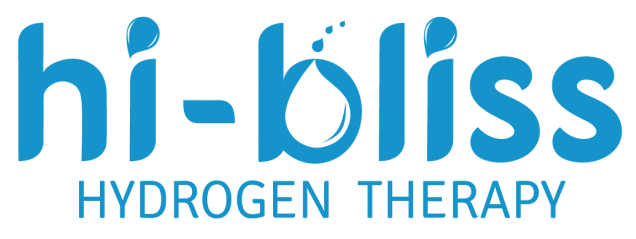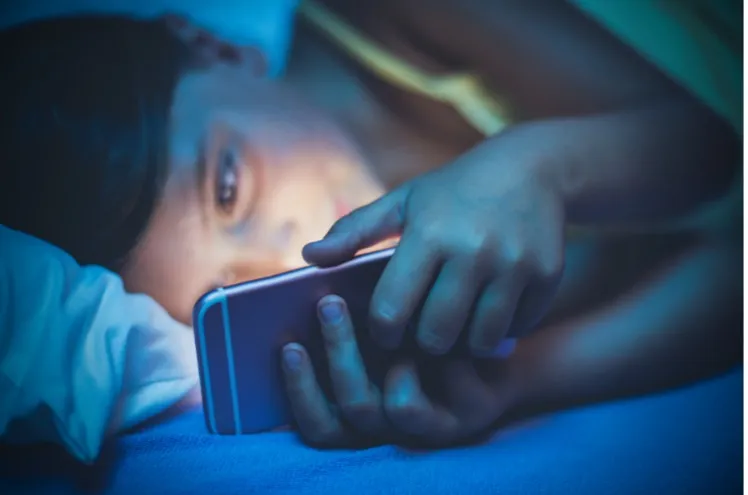Although it is environmentally friendly, blue light can affect your sleep and potentially cause disease. Over the last few years (prior to COVID-19), the amount of time we spend glued to our electronic devices has steadily increased, and the pandemic (plus the ensuing lockdowns) have exacerbated the situation since most interactions have gone virtual.
This means the amount of blue light to which we are exposed has also seen a substantial increase. And if you are wondering whether the blue light from your smartphone (and other devices) is harmful, the answer is a resounding yes. Extraordinary pressure on the retina, dry eyes, fatigue, and disturbed sleep cycles (or disturbances to the circadian rhythm) are only some of the harmful effects caused by addiction to our tablets and smartphones. Researchers have learned that blue light can also lead to vision loss. Worse, research shows that it may contribute to the causation of cancer, diabetes, heart disease, depression, and obesity.
What Is Blue Light?
Not all colors of light have the same effect. Blue light, also known as high-energy visible (HEV) light is a high-energy visible light and has shorter wavelengths. It has the highest energy level and the shortest wavelength (detectable by the human eye) of all the visible colours. Its main source is sunlight; thus, we all get our fair share of it when we’re out in the sun. It is known as blue light because it is on the violet-blue band of the spectrum.
Blue wavelengths ~ which are beneficial during daylight hours because they boost alertness, helps memory and cognitive function, elevates mood, plus regulates circadian rhythm seem to be the most disruptive at night. Blue light is emitted by digital devices, including laptops, tablets, smartphones, notebooks, and computers. The proliferation of electronics with screens, as well as energy-efficient lighting, is increasing our exposure to blue wavelengths, especially after sundown.
Though, the blue light exposure you receive from screens is small compared to the amount of exposure from the sun, there is concern over the long-term effects of screen exposure because of the close proximity of the screens and the length of time spent looking at them.


How Does Blue Light Affect the Eyes?
Almost all visible blue light passes through the cornea and lens and reaches the retina. This light may affect vision and could prematurely age the eyes.

Early research shows that exposure to intense amounts of blue light may be harmful to the eyesand could lead to:
- Digital eyestrain
Blue light from computer screens and digital devices can decrease contrast leading to digital eyestrain. Bad lighting, or how you sit in front of the computer can cause eyestrain. Symptoms of eyestrain include sore or irritated eyes, dry or watery eyes, blurred vision, headaches, facial muscles fatigued by squinting, and difficulty focusing.
- Retina damage
Studies suggest that continued overexposure to blue light over time could lead to blurry vision, cataracts, anddamaged retinal cells as occurred in the development of age-related macular degeneration (AMD), an eye disease that can blur your central vision. This concern comes from the fact that blue light and ultraviolet light place oxidative stress on the retinal pigments.
- Circadian Rhythm (Sleep-Wake Cycle)
Human eyes have receptors that contain a photopigment called melanopsin that is sensitive to blue light. Exposure to blue light is detected by the eyes and signals the pineal gland (a tiny organ deep within the brain that produces the body’s melatonin) to suppress the secretion of the hormone melatonin (a sleep hormone that helps to regulate your circadian rhythm). By suppressing the secretion of melatonin, this results in a disruption of the sleep-wake cycle.
In short, screen time, especially at night, is linked to poor sleep. The blue light from electronic devices messes with your circadian rhythm, or sleep cycle. It signals your brain to wake up when it should be winding down.
- Greater risk of certain types of Cancer
Blue light exposure might raise your risk for certain cancers. One study found that people who work the night shifts are at greater risk for breast, prostate, and colorectal cancers.
- Mental Health
Another potentially serious condition that can be caused by high night time exposure to blue light was linked to increased risk of depression or depressive symptoms in animal studies. However, exposure to blue light during the day may have the opposite effect and it has been used to treat seasonal affective disorder, or SAD (a form of depression related to the changing of the seasons).
Not many know about blue light’s negative effects on the skin ~ which can stimulate photo-ageing and over time lead to skin discoloration, inflammation and a weakened skin surface.
- DNA Damage
The findings from a preliminary study observed from a group of lighter-skinned people by exposing them to visible blue light, showed a lot of swelling, redness as well as pigment changes in the skin. This suggests that visible blue light can penetrate through the skin and cause reactive oxygen species (ROS). These reactive species can damage skin DNA and cause the breakdown of elastin fibers and collagen.
- Premature Aging
A study was published in February 2015 in Oxidative Medicine and Longevity regarding blue light exposure and skin. The study highlights a connection between blue light rays and the production of free radicals in the skin. Free radicals in the skin can speed up the process of skin aging or premature aging of the skin. Another way that blue light from computer screens may be speeding up the aging process is through pigmentation, as it can cause pigment changes. Furthermore, blue can also cause other changes to the skin, such as the shrinking of cells and even death, which leads to speedy aging.
Ways to Minimise Exposure to Blue Light
If you're one of the millions of people across the world who spend a lot of time on your phone, then it's crucial that you find ways to reduce your blue light exposure along the way. A research from the University of Toledo reveals that blue light from smartphone screen can cause blindness. The study found that blue light causes toxic reactions in retinal molecules in the eye that sense light and signals the brain. As a result, the poisonous chemical reactions kill the photoreceptors in the eyes and cannot be recovered once they die.
It's not just phones or computer screens that emit blue light. You also need to think about display screens on products like refrigerators, and lightbulbs too. To avoid serious problems, here are some ways you can work towards reducing your exposure to blue light on a daily basis:
- Stay Away from Your Phone Near Bedtime Hours
According to Harvard Health, blue light exposure in the hours leading up to bedtime can directly interrupt your body's circadian rhythm. In turn, this affects your sleep quality, and might even contribute to other more serious afflictions. As a result, you should try to avoid screen time at least 2 hours leading up to bedtime.
- Use Protective Glasses that Block Blue Light
One great option for minimizing blue light exposure is wearing protective glasses whenever you're looking at a computer screen, like during your work hours. Usually blue light glasses which are customizable, have virtually clear lenses, and have a special coating that helps prevent blue light and UV rays from passing through to your eyes.
- Use Software and/or Apps that Tone Down Blue Light Levels
Having screen brightness that is too high or too low can cause eyestrain and can make the eyes get tired faster. Look for a light-reduction application that automatically adjusts your computer's or smartphone’s color temperature display so that the display does not feel as bright and to make it less jarring to your vision at night. If possible, equip your smartphone with anti-glare glass or you can download to reduce the blue light.
- Set Screen Time Hours and Hold Yourself To Them
The best thing you can do for your eyes (and your overall mental and physical health) at the end of the day is to cap your screen time to a daily limit and hold yourself to that limit.
- Practice the 20/20/20 strategy and keep your eyes moist
Stop staring at the smartphone screen every 20 minutes for 20 seconds. Then look at something 20 feet away. It aims to temporarily relax the eye muscles and give your eyes a little rest.
When you concentrate on your smartphone, your blink rate also decreases. It can cause the tears on the surface to dry and leads to irritation, redness, pain and blurry vision. Try to also blink more often as this will make the eyes moist and reduce irritation. Blink at least 10 times every 20 minutes.
- Have some distance between eyes and smartphone
Holding your smartphone only about 20 cm from the face is very bad for the eyes. Give a distance of at least 40 – 46 cm from the eyes. Maybe it will feel strange for the first time, but you will get used to it.
- Choose Lightbulbs with A "Warm White" Tone
In contrast, you should avoid lightbulbs whose brightness is described with phrases like "daylight" or "cool white."
There is no time better than the present, to start taking action.
Hydrogen’s potent antioxidant properties selectively scavenges free radicals thus reducing oxidative stress, and anti-inflammatory properties effectively reduces inflammation. Learn more how Hi-Bliss Hydrogen Therapy can help to take care of your eyes here: https://wordpress-851564-2937612.cloudwaysapps.com/treatment-services-eye-therapy/
References:-
- Protective effect of saturated hydrogen saline against light-induced retinal damage in rats ~ Mei Feng, Xing-Hua Wang, Xiao-Bo Yang, et al. | Int J Ophthalmology | doi: 10.3980/j.issn.2222-3959.2012.02.07 | https://www.ncbi.nlm.nih.gov/pmc/articles/PMC3359028
- An Immunohistochemical Study of the Increase in Antioxidant Capacity of Corneal Epithelial Cells by Molecular Hydrogen, Leading to the Suppression of Alkali-Induced Oxidative Stress ~ C. Cejka, J. Kossl, B. Hermankova, V. Holan, and J. Cejkova, et al. Oxidative Medicine And Cellular Longevity | Volume 2022 | Article ID 9846572 | DOI:10.1155/2020/7435260
- Rapid Diffusion of Hydrogen Protects the Retina: Administration to the Eye of Hydrogen-Containing Saline in Retinal Ischemia-Reperfusion Injury ~ Yaxing Zhanga Sihua Tana et.al. Cell Physiol Biochem 2018;47:1-10. DOI: 10.1159/00048973
- Sirtuin Type 1 Mediates the Retinal Protective Effect of Hydrogen-Rich Saline Against Light-Induced Damage in Rats ~ Lin-Song Qi; Lu Yao; Wei Liu; Wei-Xun Duan et. al. Investigative Ophthalmology & Visual Science December 2015, Vol.56, 8268-8279. https://doi.org/10.1167/iovs.15-17034



